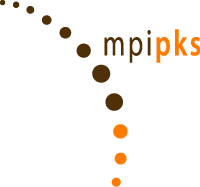
Quantum Materials in the Quantum Information Era
Workshop Report
The international workshop QMATQI23 took place from September 25 – 29, 2023. There were 72 participants from 13 countries. The aim of the workshop was to bring together scientists working in various aspects of quantum materials with potential relevance to quantum information, highlighting the progress and prospects for advancement in this emerging area.
The workshop included speakers from various sub-areas and included both theory and experiment. For example, in the area of quantum magnetism Alan Tennant delivered a lecture on entanglement in quantum magnets and its measurement and Hae-Young Kee a lecture on theoretical developments in multipolar spin liquids. In the area of 2D systems, lectures included those by Mitali Banerjee on thermal signatures of edge states in quantum Hall systems and by Ady Stern on proposed approaches for using electronic conductance to probe anyonic statistics. In the area of novel topological electronic systems, examples were Nandini Trivedi with a lecture on using orbital frustration to design topological flat bands and Yoshi Maeno on recent updates on the strontium ruthenate superconductor. We held two discussion sessions, wherein topics and questions were submitted by audience members using an online system as well as in hand-written form. The audience responded to these questions, proposing ideas and concepts in interactive sessions.
In addition to the above activities, there were aspects targeted specifically for junior scientist participation. This included two poster presentation sessions with two associated short poster talk sessions. In the latter, junior participants gave two-minute presentations about their posters. Several junior participants and other contributing participants were also selected to deliver contributed talks along with the invited speakers.
The workshop activities identified several key areas for the consideration of the future development of this research area:
-Are there problems from the quantum materials realm that could be profitably addressed with quantum devices?
-How can topology be best used for quantum information?
-What quantum information quantity would characterize quantum criticality?
The organizers noticed a distinct cross-fertilization between the scientific sub-areas as the workshop proceeded. It was clear that some concepts developed in e.g. quantum magnetism in the context of entanglement witnesses could be used to extend considerations in low-dimensional systems. It is expected that this will help to germinate new ideas in the future for connecting quantum information and quantum materials.
The organizers express their sincere thanks to the Max Planck Institute for the Physics of Complex Systems for hosting us, to the Institute staff for their expert support in running this workshop. Particular thanks are expressed to Mandy Lochar for excellent organizational support and Ronny Börner for impeccable technical support with the sessions.
Joseph Checkelsky, Qimiao Si, Roser Valentí
